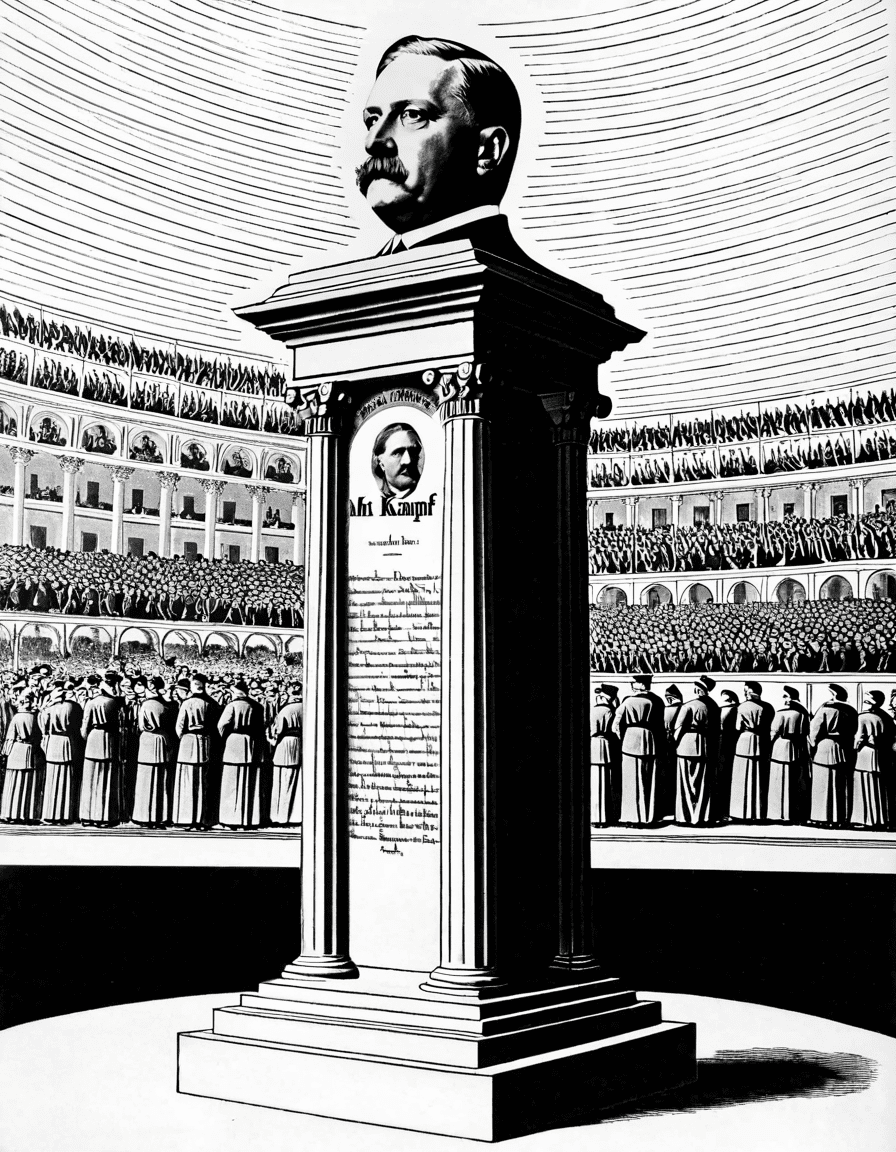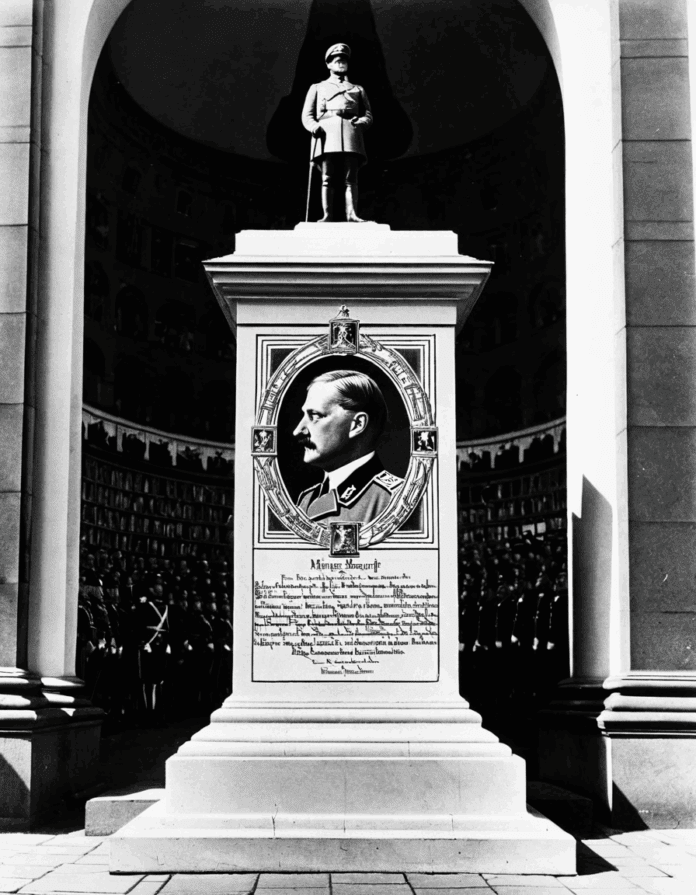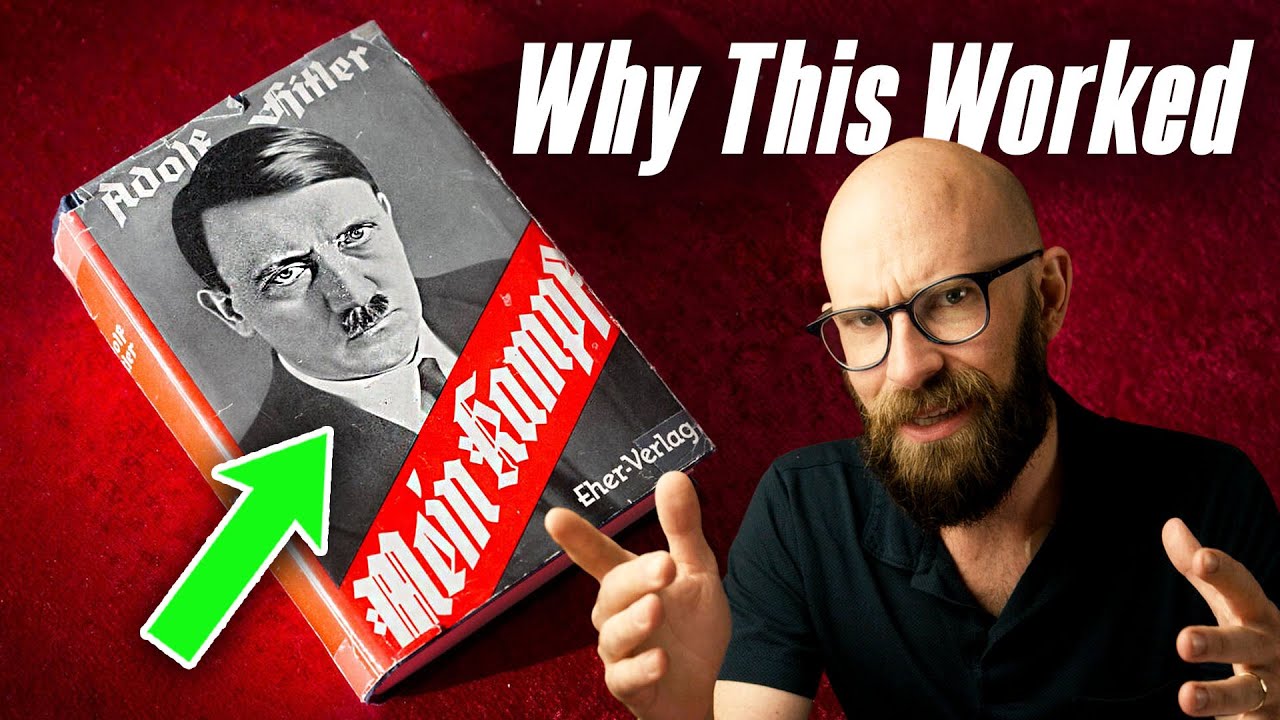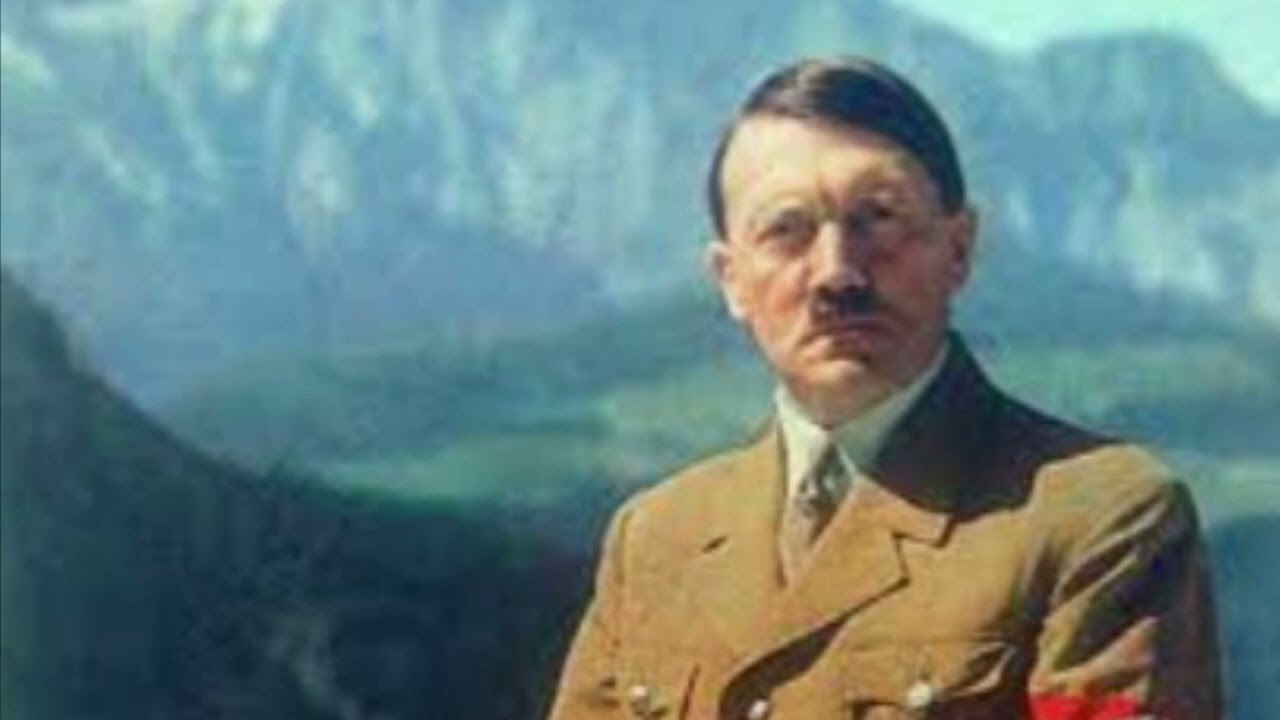When it comes to notorious texts, few hold such a polarizing stature as ‘Mein Kampf.’ Written by Adolf Hitler during his imprisonment in the 1920s, this manifesto has reverberated through history, shaping ideologies and movements that still echo today. With its ideology steeped in nationalism and anti-Semitism, it’s hard to overstate the impact: think of it as a cultural landmine that keeps reshaping the landscape every few decades. So, let’s dive into the seven significant impacts of ‘Mein Kampf’ on modern society and see just how it continues to resonate—even in unexpected places like your next movie marathon.
1. The Birth of Totalitarian Ideologies
First up, we can’t ignore how ‘Mein Kampf’ laid the groundwork for totalitarian regimes. Its nationalistic and anti-Semitic rhetoric has found a comfy home in the ideologies of various far-right movements today. Groups like France’s National Front and Germany’s Alternative für Deutschland (AfD) recycle themes like racial superiority and nationalism, stirring up division and fear in society. It’s almost like they’re reading from the same playbook—minus the running commentary from the history books!
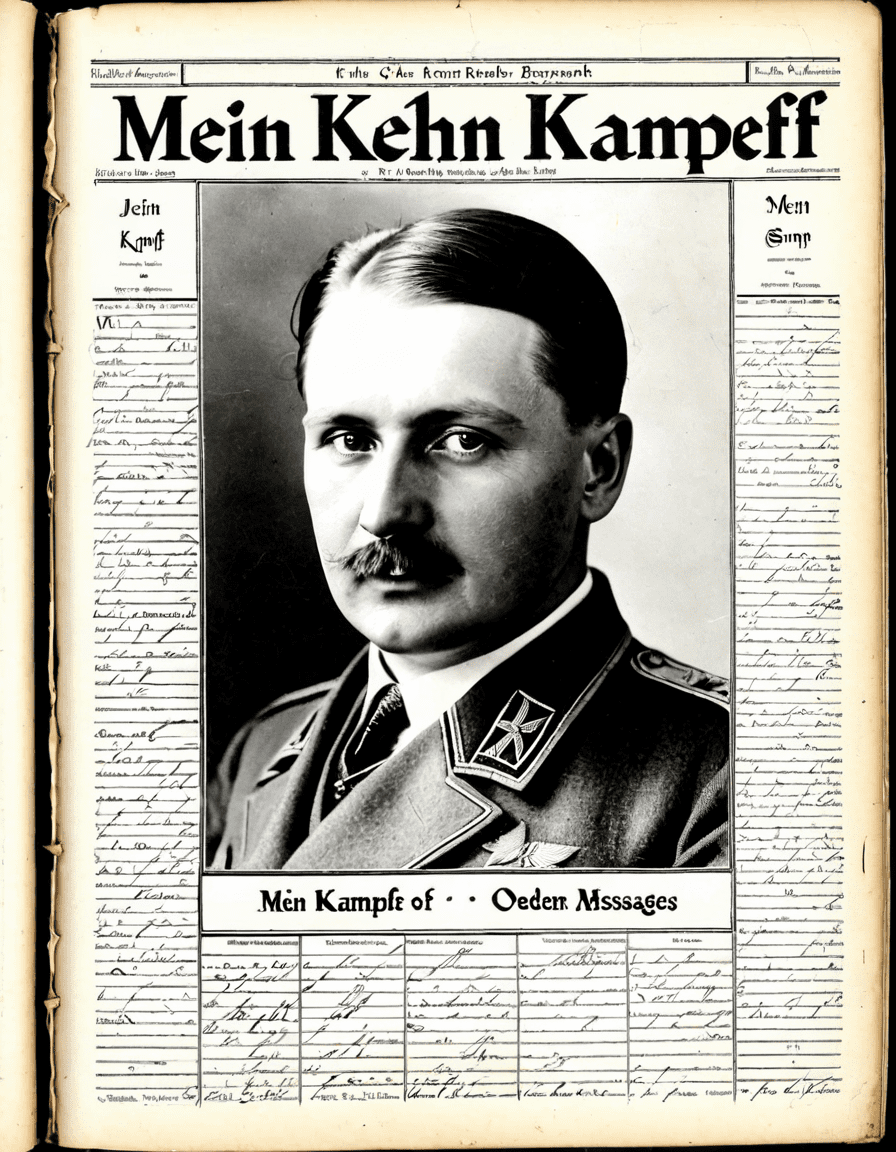
2. The Marketing of Hate
Speaking of playbooks, contemporary extremist organizations are taking cues from the propaganda strategies of ‘Mein Kampf.’ Groups like the Proud Boys have become experts at leveraging social media to spread their toxic messages, reminiscent of the twisted persuasion seen in Hitler’s writings. Remember when you thought your news feed was just filled with selfies and cute cat videos? Well, these extremists want to diversify that content with their ideologies. They actively recruit and radicalize individuals, turning platforms like Facebook into battlegrounds for ideas that would make Hitler proud—unfortunately.
3. From Controversy to Education: Debates in Academia
The old debate of whether ‘Mein Kampf’ should be included as an educational resource is still alive and kicking. Some scholars believe dissecting the text could prevent the resurgence of its dangerous ideologies, while others argue it’s propaganda that should be banished from academia. Take, for instance, the recent stir at the University of Cambridge, which faced a backlash for promoting studies on this troubling document. Education and moral responsibility don’t always see eye to eye here, and that tension sparks plenty of heated discussions on campuses worldwide.
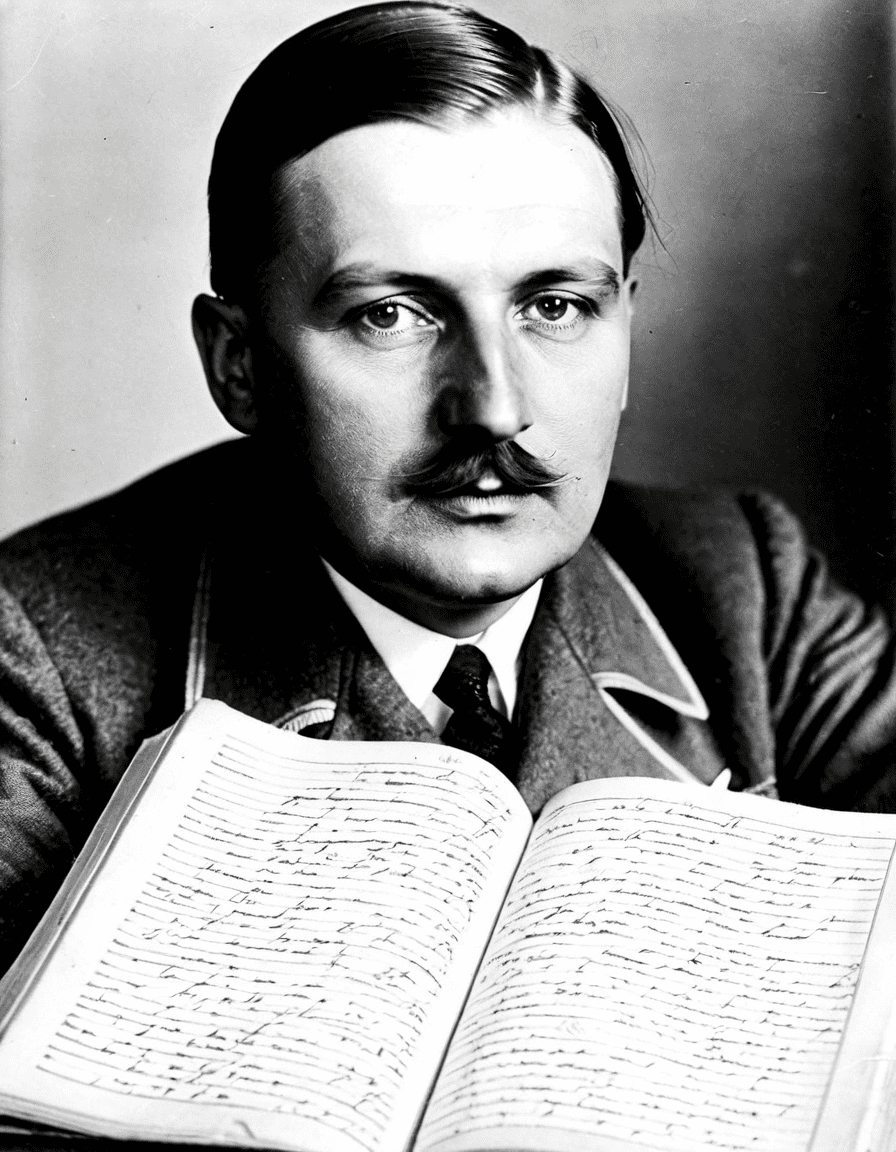
4. ‘Mein Kampf’ in Popular Culture: A Portrayal of Extremism
These themes don’t stay limited to textbooks. Movies and TV shows often paint a stark picture of the extremism laid out in ‘Mein Kampf.’ Take “American History X,” for example. It delves deep into the allure of hate, mirroring the seductive nature of Hitler’s ideology. These fictional portrayals compel us to confront our own views on race relations, love, and morality, reminding us of how past ideologies can seep into contemporary thought—whether we realize it or not.
5. The Rise of Conspiracy Theories
As if ‘Mein Kampf’ wasn’t insidious enough, its ideas have sown seeds for modern conspiracy theories. Claims of a “global elite” resonate with Hitler’s notion of a ‘pure’ society, making it easy to draw connections between today’s conspiracy theorists and the twisted frameworks presented in his controversial text. The echoes of this ideology lend themselves to an unsettling trend: using fear as a recruitment tool for radicalism. This crossover from history to the present is nothing short of alarming.
6. The Legal Battle: Access and Censorship
Now, let’s get legal for a moment. Different countries grapple with whether ‘Mein Kampf’ should be censored or circulated freely. Germany, for instance, maintains strict laws around the publication and distribution of the book, often providing annotated editions to offer critical context. These ongoing discussions highlight an ongoing societal struggle: how do we balance free speech with the potential harms of a text that’s so clearly laden with hate? Spoiler alert: There’s no easy answer.
7. Continued Publication and Its Popularity
Despite being steeped in a history of hatred, ‘Mein Kampf’ continues to circulate, available in various languages around the world. New publications suggest a strange resurgence, as certain nationalist groups treat it like a manual. It’s as if ‘Mein Kampf’ is some sort of hot commodity in back-alley bookshops, with its ideas still finding willing ears. That demand rings alarm bells, driving home the importance of remaining vigilant against the ideologies it encapsulates.
The Ongoing Conversation: Reflecting on ‘Mein Kampf’ in 2026
As we step into 2026, the legacy of ‘Mein Kampf’ is more relevant than ever. Discussions surrounding hate speech, ideological extremism, and societal division are more than just academic debates; they’re critical conversations impacting how we live today. Recognizing and understanding this legacy isn’t just about revisiting history; it’s about shaping a future that rejects all forms of hate and division. The task ahead involves balancing valuable educational discourse with the urgent need for social responsibility— a challenge that’s ever present.
So, as you sit down to watch some classic cinema or binge-watch the latest drama—like “Pretty Little Liars: Original Sin Season 2”—remember that the stories we consume are intertwined with the ideologies of our past. And don’t forget to check out the centerpiece of today’s flick, whether it’s Quentin Tarantino Movies or sensational new releases like “Puss in Boots: The Last Wish.” Staying informed is our best tool against the cyclical nature of hate.
In the end, ‘Mein Kampf’ may be just a book, but it’s a troubling talisman of ideologies that persist in our society. Let’s ensure it remains just that—a reminder of what we collectively strive to stand against.
Mein Kampf: Fascinating Trivia Surrounding a Controversial Text
The Origins of Mein Kampf
“Mein Kampf,” written by Adolf Hitler during his imprisonment in the 1920s, has an incredibly tumultuous history. This book’s origins are quite fascinating; it was initially intended to be an autobiography. Hitler aimed to tailor it to showcase his ideological stance. Interestingly, some might compare its dramatic narrative to the latest season of Pretty Little Liars : Original Sin, where complex relationships unfold in ways we never see coming. While that may be a stretch, both works reveal the deep-seated beliefs that shape their characters and the perceptions they create.
The Impact of Mein Kampf
Throughout the years, “Mein Kampf” has spurred significant debate and discussions. Not unlike how fans eagerly anticipate the next installment of The Hunger Games 2 , historians and scholars dissect this text to understand its effects on society. This book’s ideologies helped lay the groundwork for the Nazi regime, leading to drastic societal changes across Europe. Giancarlo Espositos portrayal of complex characters enhances the storytelling in films, reflecting how literature can profoundly shape the human experience and societal norms. It’s alarming how a book could exercise such an influential grip on the collective psyche.
Cultural Repercussions of Mein Kampf
Moving beyond just the political landscape, “Mein Kampf” has also infiltrated cultural discussions. One can draw parallels with modern narratives, such as the enchanting undercurrents in films like Puss in Boots : The Last Wish. The way tales are spun can either illuminate or darken societal views. In today’s world, frames of reference have changed dramatically with the rise of various art forms, like contemporary pieces echoing themes in Evangelion. This sends a vital message: books like “Mein Kampf” serve as reminders of history’s lessons, but they also pave the way for transformative dialogues in cultural narratives.
The Ongoing Relevance of Mein Kampf
Even today, “Mein Kampf” continues to spark controversy, widely debated in classrooms and beyond. Discussions surrounding its themes echo the same tensions felt in current dialogues about race, nationalism, and identity. Just like how “Saint Mary’s Basketball” has captivated fans with its thrilling gameplay, debates surrounding this infamous text draw in audiences eager to understand historical context and implications. It’s worth noting that knowledge is power, and knowing the past may prevent individuals from repeating those mistakes. So, while books like “Mein Kampf” are often shunned, the importance of critical engagement with them remains clear—learning from the past shapes a better future and helps keep modern societies vigilant against ideologies that misconstrue history.
